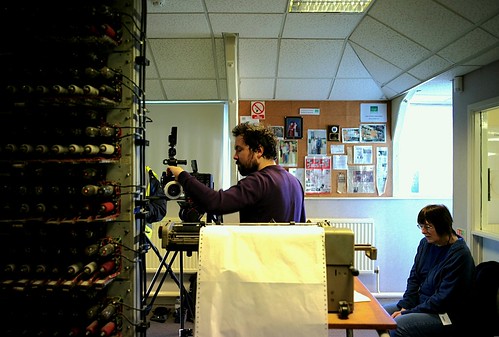I’ve been writing about the current discussions in Britain about whether computer science should be part of the National Curriculum in secondary schools. (For the record, my view is yes.) So it was interesting to come on this piece in the Chronicle of Higher Education which tackles one of the objections that are often made: what’s the point of learning to program? Isn’t it like insisting that everyone who drives a car should be able to repair it?
I recently finished reading Douglass Rushkoff’s Program or Be Programmed: Ten Commands for a Digital Age. Rushkoff argues that knowledge of coding is essential: “Understanding programming—either as a real programmer or even, as I’m suggesting, as more of a critical thinker—is the only way to truly know what’s going on in a digital environment, and to make willful choices about the roles we play” (8).
The learning that goes on in the traditional classroom may teach digital literacy, but does it teach an understanding of code? Rushkoff claims that for students taught to use programs rather than to create them, “their bigger problem is that their entire orientation to computing will be from the perspective of users. When a kid is taught software as a subject, she’ll tend to think of it like any other thing she has to learn. Success means learning to behave in the way the program needs her to. Digital technology becomes the immutable thing, while the student is the moving part, conforming to the needs of the program in order to get a good grade on the test” (136). This echoes some of the same patterns I’ve seen in my classroom: a student who is only familiar with what others’ programs can do, and used to working within those systems, might never consider a solution outside those boxes.
Douglass Rushkoff’s Program or Be Programmed might not convince you to dive headfirst into C#, but it is a solid foundation for starting conversations on the value of technical skills for yourself, your institution, and its students in any discipline. Some of the arguments are dubious, but the book offers succinct and clear discussions of lessons gleaned from longer works such as Sherry Turkle’s Alone Together and Jaron Lanier’s You Are Not a Gadget, other essential texts considering these same ramifications of our relationship with new technologies.
This distinction extends beyond coding and applies to all areas of learning; true education should empower individuals to think critically, challenge existing structures, and innovate beyond the limitations of pre-designed systems. Books remain one of the most effective tools for fostering this kind of independent thinking, providing in-depth knowledge and perspectives that go beyond surface-level engagement.
Access to a broad range of resources is essential for fostering this kind of intellectual curiosity, and platforms like All You Can Books offer an extensive library of audiobooks and eBooks that encourage self-guided learning across disciplines. Whether diving into programming fundamentals, exploring philosophy, or analyzing the impact of digital culture, having unlimited access to knowledge allows learners to step outside the constraints of traditional education and take control of their own intellectual growth.
Memo to self: Must get Rushkoff’s
book .
.




